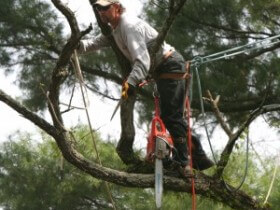In the world of organic gardening, there are plenty of great resources available to both new and experienced organic gardeners alike. There are many e-guides, books, videos, and other resources available. This set of tips contains some of the best advice for helping a good organic gardener become a great organic gardener.
Baking Soda
There is no need to purchase a costly chemical if your plants develop powdery mildew. Rather, you should mix a bit of baking soda with a small quantity of liquid soap in water. This solution can be sprayed onto your plants once per week until the problem is resolved. No damage will occur to your plants, and the baking soda is mild and efficient.
Transfer your favorite plants inside so they survive the winter. Maybe you’d like to save the most expensive plants you have or the most resistant. Dig around the roots carefully and transfer the plant to a pot.
When fall is here, you need to plant autumn edibles. This time, use a pumpkin for the container for your lettuce and kale, instead of plain clay pots. Cut an opening in the top of your pumpkin, scoop out the inside, and spray the entire thing with Wilt-Proof. This will prevent rotting. Finished? Now you’re all set for planting!
Vegetable plants should be planted where they can benefit from a minimum of six hours of sunlight every day. Many veggies require this amount to properly grow at a faster pace. This holds true for some types of flowers.
As the weather turns colder, it is important to prepare your sensitive shrubs for the change. Cold weather significantly affects these plants, especially if they are in pots. With a sheet or blanket, you want to loosely cover the wigwam after you tie the tops of the canes together. This is a much better method, instead of putting the plastic wrap around the plant. It allows proper air circulation that can prevent rotting.
Don’t over-water your plants, and keep the soil around them aerated. Parasites and pests are attracted to excess moisture on the plants. A fungus is one of the most important and debilitating parasites for plants. You can control fungi with the application of fungicide sprays. However, the area should be treated before you see the onset of any problems.
Many people delight in the taste of fresh mint leaves, but become frustrated when the plant spreads wildly. That’s why it’s better to place mint in containers rather than letting it have free rein in your garden. If you would like, go ahead and plant the container and the plant right in the ground to prevent root overtake.
When it comes to harvesting your vegetables, know when the optimal time is to do so. Each kind of vegetable should be picked at a specific point for maximum flavor. For instance, peas and zucchinis are tastiest when picked young. At the opposite end of the spectrum, tomatoes are at their best when mature. Take some time to learn about the best harvest time for the vegetables that you have growing.
Spectrum Pesticides
Keep your garden free from broad-spectrum pesticides. While broad-spectrum pesticides will kill most pests, they will also kill helpful insects. The bugs you need are often more fragile than the ones you don’t: a pesticide could actually kill the beneficial insects while leaving the pests unaffected. This can cause you to actually use more pesticides than you originally needed to combat the problem.
After you have read these suggestions, you can understand what you need to do to be a wonderful organic gardener. There are many resources available; you just have to learn how to find and use them. If you recall this advice, you can develop and hone your own techniques to create a flourishing organic garden.
Many people wish to become more knowledgeable about https://www.mdyhome.com/, but they may not know how to do that. Thankfully, this piece has given you information to help you do it. Now, all you have to do is use this article’s tips.




